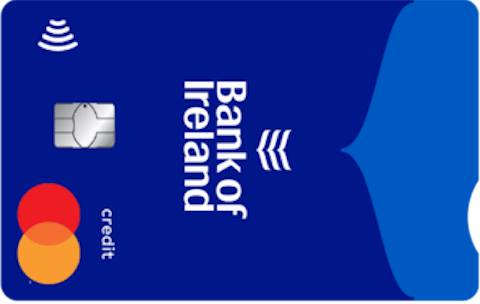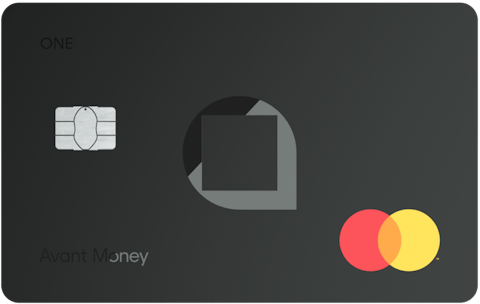Compare Ireland’s best credit cards
Discover the best credit card deals and get Ireland’s top balance transfer, rewards and 0% purchase card offers.
Ideal for everyday spending

Longest 0% money transfer

Guide
Your complete guide to credit cards in Ireland
Credit cards are a convenient and secure way to pay. Here’s what you need to know about credit in Ireland and how to pick the right card for your needs.
- Part 1 How credit cards work
- Part 2 Types of credit cards
- Part 3 Credit card costs
- Part 4 Choosing the right credit card
- Part 5 Applying for a credit card
Credit cards, at a glance
Which type of credit card do you need?
Choosing the right credit card depends on how you plan to use it - whether that’s clearing existing debt, spreading the cost of a purchase, or earning rewards on everyday spending.
The main card types in Ireland offer very different benefits and promotional periods, so it’s worth matching the card to your financial goal.
Here’s a quick overview to help you decide which option fits your needs.
| Card type | Best for | What you get | |
|---|---|---|---|
| Balance Transfer Cards | People with existing credit card debt | 0% or reduced rates for a set period. Compare balance transfer cards | |
| Purchases Cards | Spreading the cost of new or large purchases | 0% or low promotional rates on spending. Compare purchases cards | |
| Rewards Cards | Cashback, travel, or loyalty points | Rewards & cash back on everyday spending. Compare rewards cards | |
| Student / Starter Cards | Building credit or needing lower limits | Lower limits & simpler eligibility for starters. Student credit cards guide |
For more in-depth information on credit cards, the different types, costs, and how to choose the right one for your needs, read our complete guide on credit cards.
Our expert says
Credit cards are a safe and convenient way to buy now and pay later.
There are several types of credit cards, with a range of features to suit every financial need.
Purchase credit cards often come with a 0% introductory discount, which means you can enjoy interest-free spending for up to 12 months. Reward cards give you cashback when you shop and sometimes the chance to earn travel perks or discounts.
If you already have a credit card, balance transfer credit cards allow you to move your existing debt to cut interest costs and clear your balance faster.
If you are planning to borrow as we head towards Christmas, our advice is to take the time to understand how credit cards work and what type of card would suit you best.
Compare interest rates to find the best credit card deal and check for any extra fees and charges. The best credit cards have a low APR (Annual Percentage Rate) and a long introductory offer period, so you can enjoy zero-interest purchases and balance transfers for longer.
Before you make a credit card application, check that you meet the lending criteria and always read the terms and conditions, so you fully understand the costs.
To encourage safe and responsible lending, all credit card providers listed are regulated by the Central Bank of Ireland, ensuring compliance with financial regulations.
Eoin Clarke
Should you switch your credit card?
Is now a good time to switch?
Many Irish consumers are still paying more than they need to on their credit card.
Recent data from the Central Bank shows that right now, over 400,000 Irish consumers remain on older cards with higher APRs.
If you’re carrying a balance or your promotional rate has ended, switching to a lower-cost card can significantly cut the interest you pay each month.
Switching to a 0% balance-transfer offer can give you time to clear your debt without interest adding up. Simply apply for a new balance-transfer card, and once approved, request your new provider to transfer the balance at the 0% rate.
Once complete, contact your old provider to close your account.
Latest Update
Credit cards roundup
Card spending up by 5.7% in December
17/01/2026: Bank of Ireland reported a 5.7% surge in card spending during December, outstripping the 3.2% inflation rate. This indicates growth in household purchasing power despite rising costs.
Whilst the retail sector recorded only a modest 1% gain, education and health saw rises of around 10%. Pubs and restaurants saw an increase of 2.5% year on year, while entertainment rose by 2.8% - more in line with inflation.
The Bank of Ireland report showed that ATM withdrawals continue to decline, signalling a continued shift toward cashless spending.
Value of stolen Irish credit cards rises 53% as Ireland enters global top 10 for card fraud
03/11/2025: The average price of a stolen Irish credit card being sold by criminals rose by 53%, from €5.01 in 2023 to €7.66 in 2025.
Ireland now ranks among the top 10 countries for stolen-card data on a per-capita basis.
The research, conducted through dark web marketplace data analysed by Nordstellar, found 50,705 card records marketed for fraud.
The rise comes after Central Bank of Ireland figures showed individuals and businesses lost €160 million to fraud in 2024, with digital payments the fastest-growing channel for criminals.
The fraud chain often starts with data theft, followed by “validators” using bots to test cards, and “cash-outers” converting valid cards into cash, goods, cryptocurrency or travel bookings.
To protect yourself, experts advise monitoring bank/card statements weekly, enabling real-time alerts, using strong unique passwords (and avoiding browser-saved passwords), and activating multi-factor authentication on accounts.
Card spending hits €9.49bn in August despite holiday dip
02/09/2025: Latest figures from the Central Bank of Ireland show Irish card spending reached €9.49bn in August 2025, up 7.65% year-on-year despite a seasonal slowdown compared to July.
Spending fell 2.76% month-on-month, with overseas card use dropping sharply after July’s peak holiday spending. Non-domestic transactions were down 9.7% on July, but still showed strong annual growth, with online payments abroad up 9.53% year-on-year.
Domestic card spending came to €7.78bn, down slightly month-on-month but rising annually. Point of Sale (POS) payments held steady at €4.05bn, while online transactions hit €3.73bn, growing 11.7% annually.
Contactless payments rose to €2.58bn in August, up 0.7% on July, with mobile wallet (NFC) transactions increasing by 2.08%. The strongest growth was in Laois (+35%) and Wexford (+11%), likely boosted by events like Electric Picnic and the Fleadh Cheoil.
By sector, most areas saw monthly declines, but education spending spiked 120% as back-to-school costs hit households. Spending on office and school supplies also rose nearly 8% month-on-month.
Meanwhile, cash withdrawals continued to fall, down 6.5% year-on-year to €1.09bn, reflecting the ongoing shift to digital payments.
Our credit wise tips
A credit card can be a great spending partner when used wisely. Here’s our quick tips for managing your credit card to keep borrowing costs under control.
Pay your balance in full every month
When possible, pay your entire balance off in full every month rather than just the minimum monthly payment. This way you’ll avoid paying interest on the borrowed money and pay off your debt quicker. If you can’t clear the outstanding balance, pay as much as you can afford when the balance is due.
Use for purchases not cash withdrawals
Whilst credit cards are a safe and convenient way to shop online or purchase in store, using your credit card for cash withdrawals can be costly. You’ll have to pay a cash advance fee and could get charged a higher interest rate.
Repay on time and don’t miss payments
If you miss payments or pay late, you could incur penalties and extra fees on top of interest. If it happens regularly, it may count against your credit rating and make future borrowing more expensive. Set up a direct debit and pay at least the minimum payment each month.
Consider a balance transfer
If you have an existing card debt, consider a credit card with an introductory balance transfer deal. Moving your current credit card balance to a 0% credit card could cut interest fees and clear the debt faster. Make sure you repay within the discount period and don’t use your card for purchases.
Check on transaction fees abroad
It’s tempting to pay for everything by card on holiday. Paying with a credit card is easy, provides protection and saves juggling new currencies. However, foreign transactions and ATM fees abroad can quickly add up, leaving you with a hefty price to pay on your return.
Use a credit card comparison
It’s often easier to apply for financial products with your existing bank, but they don’t always offer the cheapest or most suitable deal for your needs. Learn how to pick the right card in our complete guide to credit cards and use our credit card comparison to search for the best offers.
What you need to know
Common credit card terms you may come across and need to understand.
What is the Typical APR?
APR is the annual percentage rate and indicates the total cost of credit, including stamp duty. Typical APR is the rate most borrowers are offered based on the average APR charged by issuers.
What is the minimum repayment?
It’s the minimum amount you must pay monthly towards your credit card balance. If you don’t cover it, you’ll be charged late payment fees, pay extra interest and could risk harming your credit score.
What is Government Stamp Duty?
Your card provider is responsible for collecting stamp duty on behalf of the Revenue. Your credit card account will be charged annually in April with stamp duty. It’s currently €30 per year.
What is a credit limit?
It’s the amount your credit card provider will lend you. Your credit limit is the maximum amount you can spend on credit and is based on your income, outgoings and credit history.











